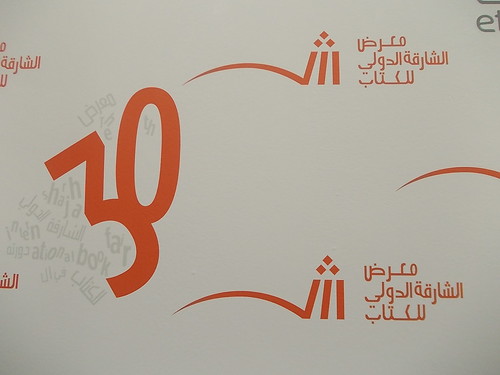Last night I went to the first few panels of the Sharjah International Book Fair cultural program. Although very diverse panels, both dealt really with the concepts of finding truth in storytelling, a topic dear to my heart (I spoke on it a few years ago at the EWF!).
The second panel was titled (and I do not lie): Finding the truth: How we allow our memories to play tricks – bestselling crime novellists debate the difference between fact, fiction, and scientific truth. There were two English-speaking writers, Peter James and Sunetra Gupta, and two Emirati authors, Suaad Yusef and Ahmed Jarallah.
I’ll paraphrase what Sunetra, who was a scientist before she became a writer, said:
Science endorses the notion that there is an objective truth, however we cannot perceive any truths without the mediation of our senses. So there is no objective reality. These are the lessons on truth I learned from being a scientist.
As a writer the truths I learn are the truths of the human condition, which are just subjective insights.
Crime fiction is an arena where these two types of fiction collide. That’s what attracts me to crime writing.
We construct ourselves out of the tricks that we allow our memory to create out of the truth. However we need ethics to restrain our urges to remember things brilliantly all the time, i.e. to have morality. We need latitude in truth but we can’t have latitude in morality, which plays out well in crime fiction.
Stories can help us shape morality. Morality is embedded in the story (rather than declared at the outset) and it can help shape reader’s morality.
Yes, she was really brilliant. The whole thing was thought-provoking in terms of thinking about what is an isn’t truth telling. You can have a broader truth while still deviating from facts. On which Sudetra said:
Of course we make fiction up, but we do it with certain rules, and it needs an internal consistency. Plausibility goes beyond writing true reality and facts: plausibility is an important factor that goes beyond researching and getting perfectly right the physical, actual details.
In so many ways, fiction can be more truthful than other kinds of writing; the truth of the human condition, the truth of society, etc. But what I love is that this panel conversation was about genre. So often I feel like we think we can only get these truths from literary fiction. But other kinds of fiction, though narrative-driven, also hold truths, even if it’s just a reflection of the culture in which it was written.
In short, genre matters!


No comments:
Post a Comment